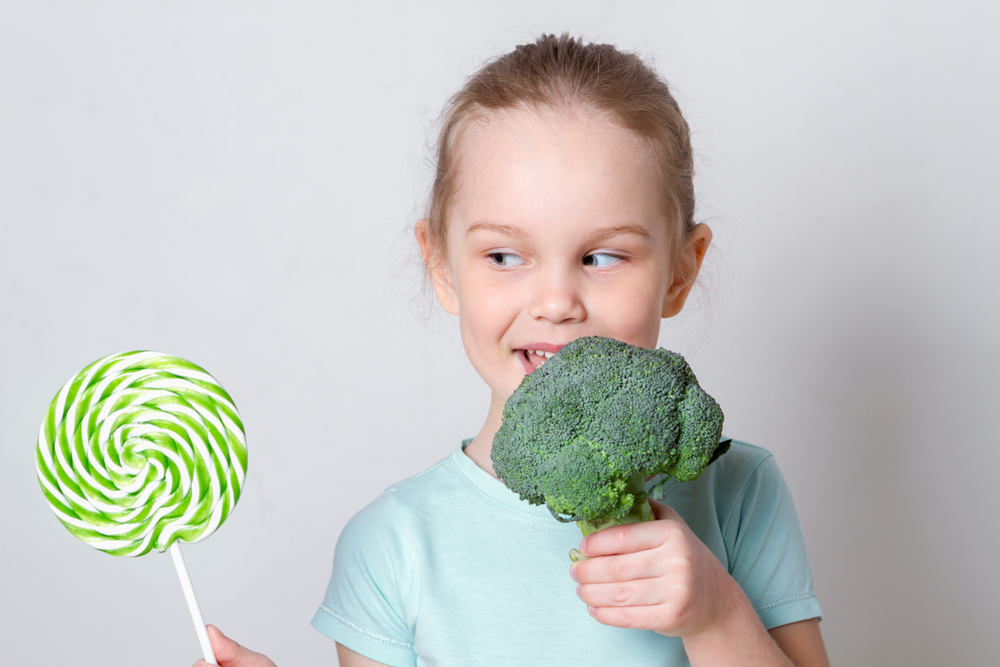Categorization skills Easy Worksheets for Ages 5-7
5 filtered results
-
From - To
Discover our engaging "Categorization Skills Easy Worksheets" designed for children aged 5-7! These worksheets are perfect for young learners to enhance their cognitive abilities while having fun. By sorting and categorizing various objects and images, kids develop critical thinking and improve observational skills. Our activities feature colorful illustrations and intuitive layouts, making learning enjoyable and accessible. Whether it’s sorting animals, shapes, or everyday items, our worksheets are aligned with educational standards and cater to diverse learning styles. Help your child build a strong foundation in categorization with our entertaining and effective resources. Start exploring today!
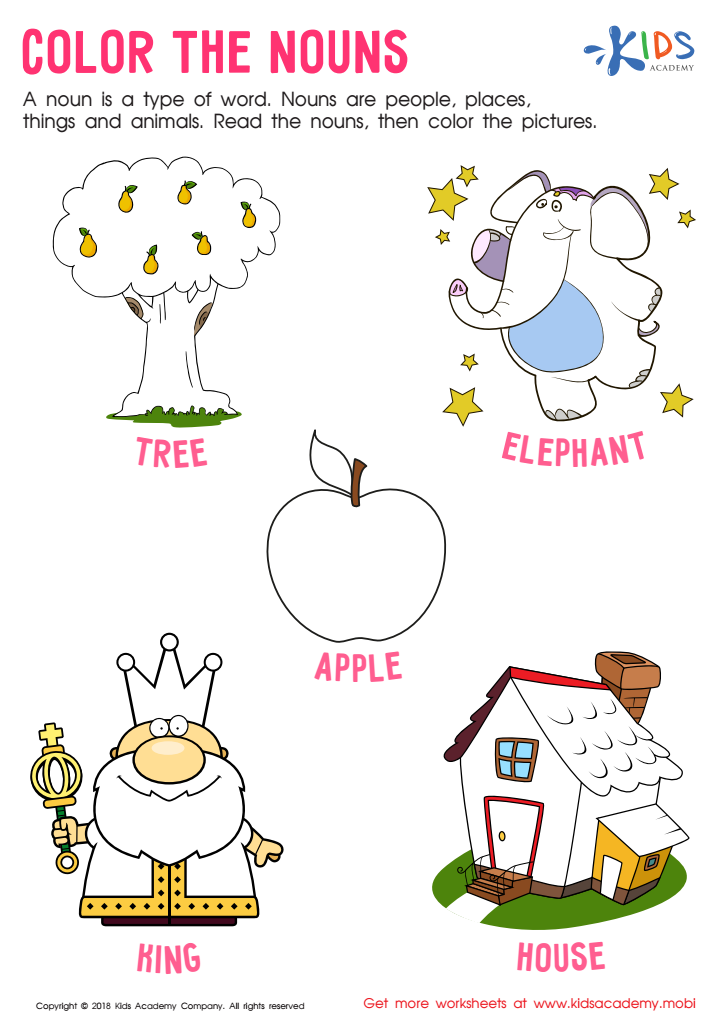

Color the Nouns Worksheet
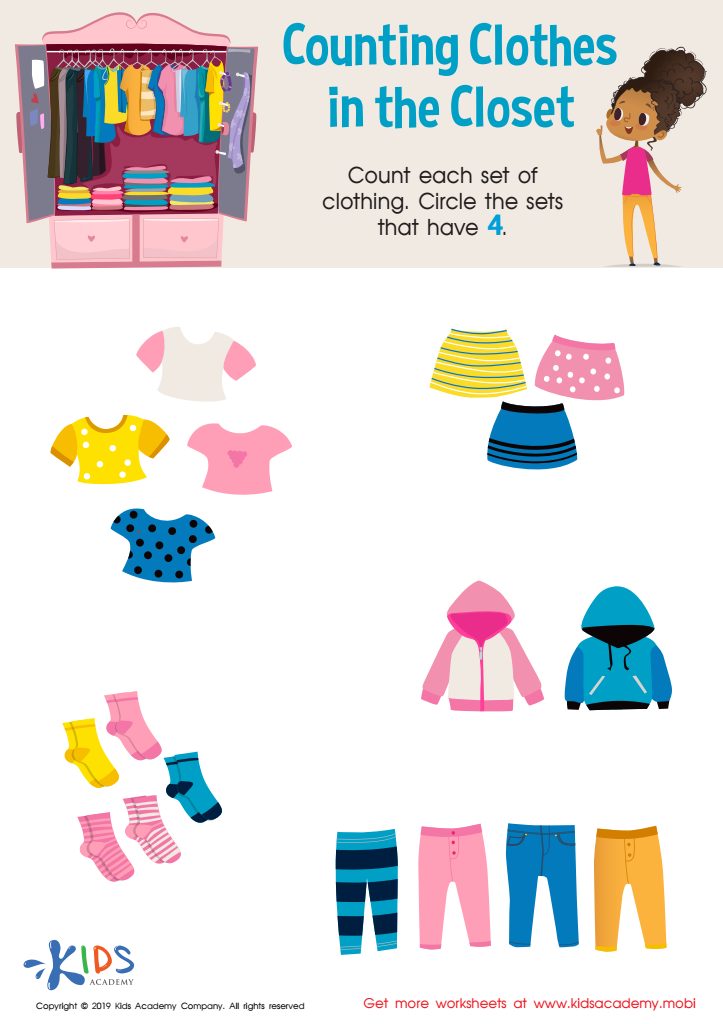

Counting Clothes Worksheet
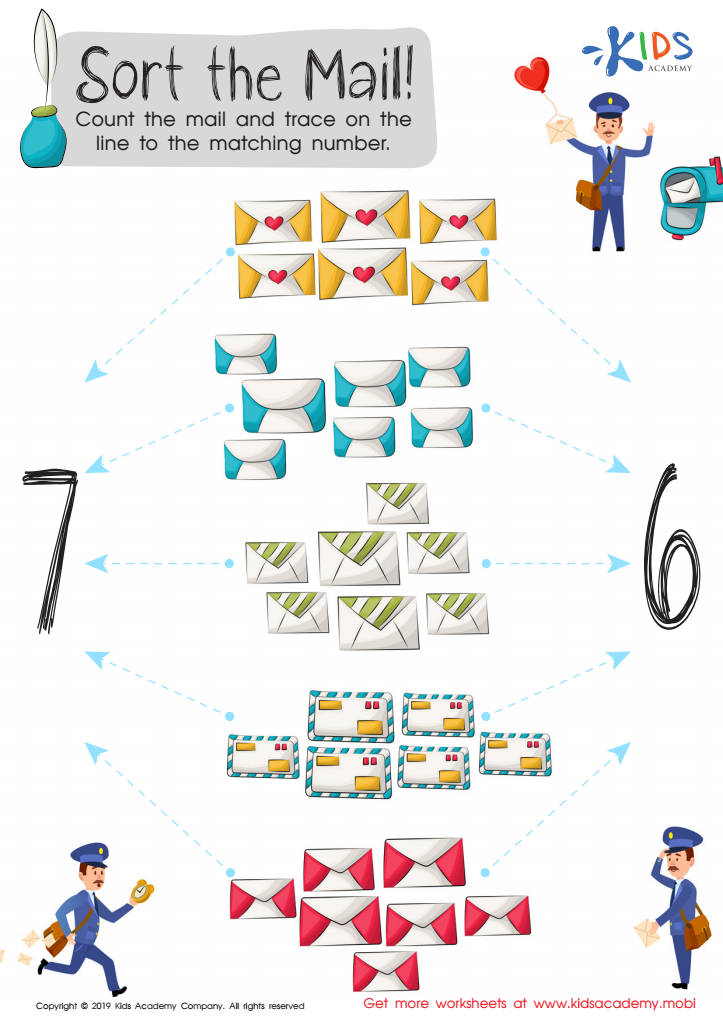

Sort the Mail Worksheet
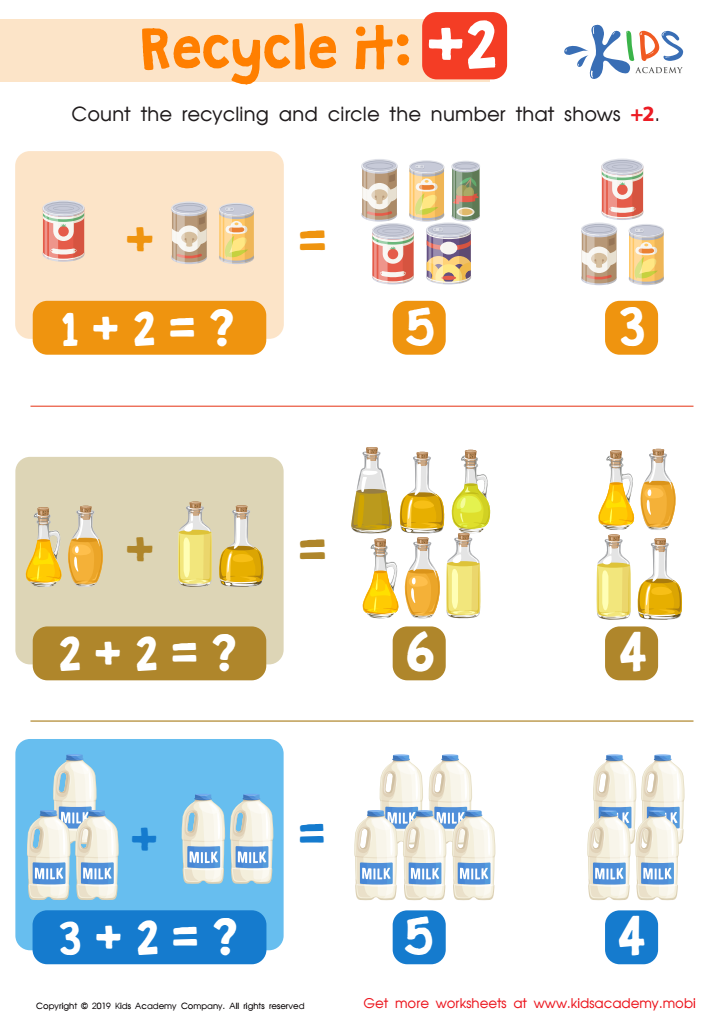

Recycle It: +2 Worksheet
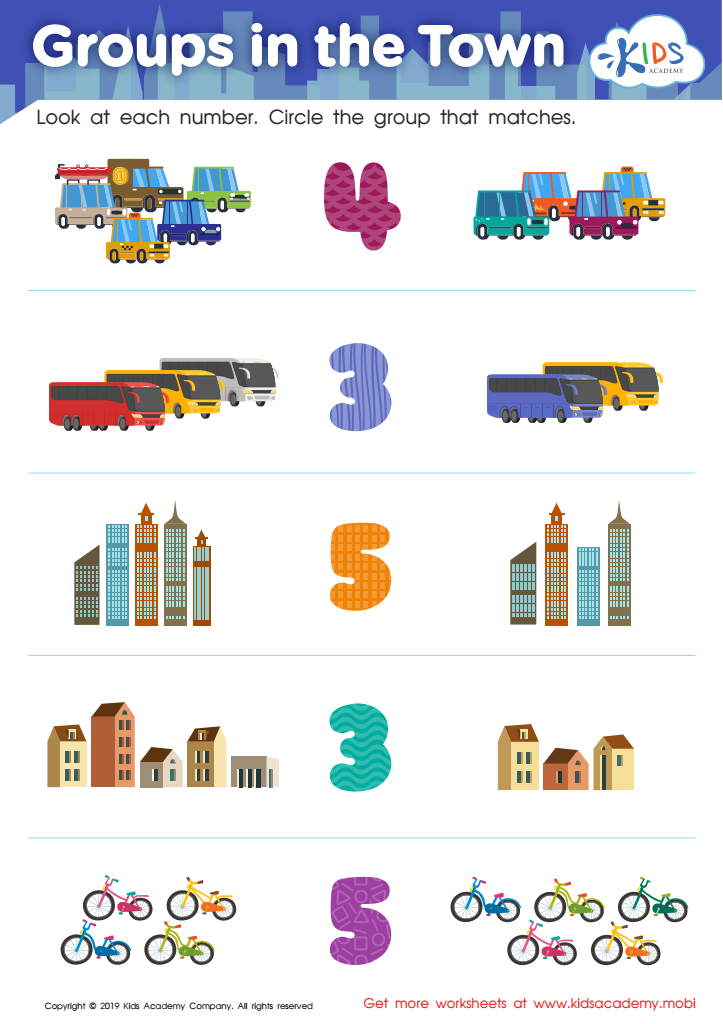

Groups in the Town Worksheet
Categorization skills are vital for children aged 5-7, as they lay the groundwork for critical thinking, problem-solving, and cognitive development. At this age, children are rapidly developing their ability to understand the world around them, and categorization helps them make sense of new experiences and information.
When parents and teachers encourage categorization, they help children learn how to group similar items or concepts, which is foundational for their comprehension and memorization processes. For example, sorting objects by color, size, or type strengthens their ability to identify patterns and relationships. These skills contribute to improved language development, as children begin to articulate their classifications and communicate effectively.
Additionally, categorization enhances decision-making skills by teaching children how to analyze options and make choices based on similarities and differences. This ability is not only important academically, but it also translates to everyday life, helping children navigate social settings, understand rules, and develop organization skills.
By prioritizing categorization activities, parents and teachers nurture a child's natural curiosity, boost their confidence in problem-solving, and foster a positive learning environment that sets the stage for lifelong learning. Thus, investing time in developing these skills is essential for holistic child development.
 Assign to My Students
Assign to My Students




